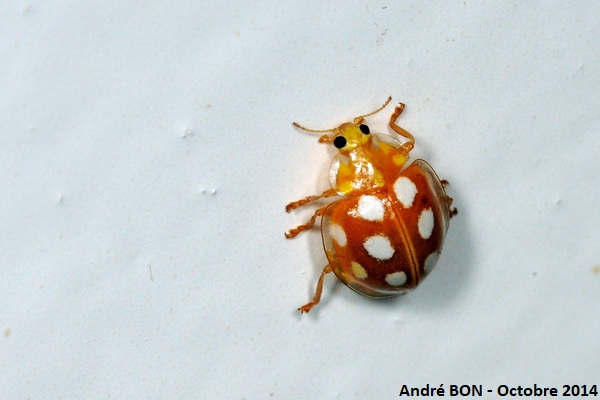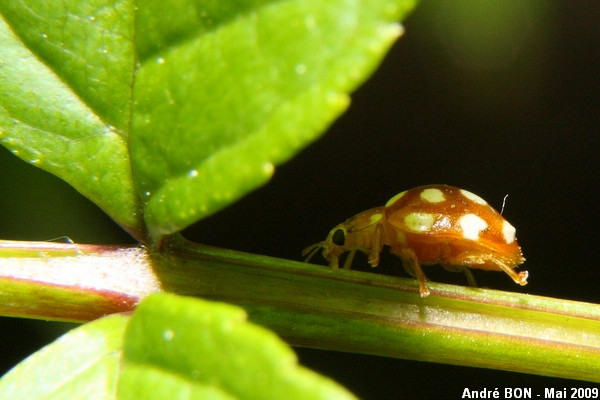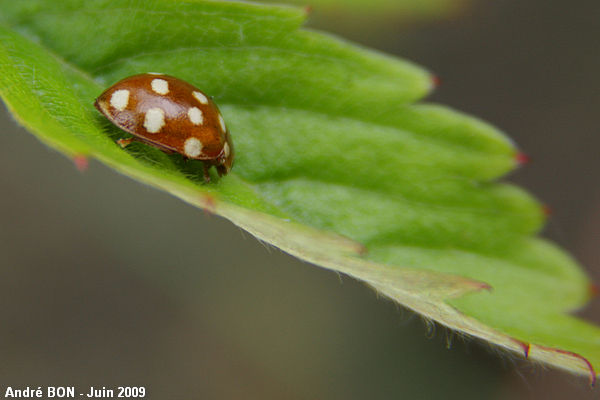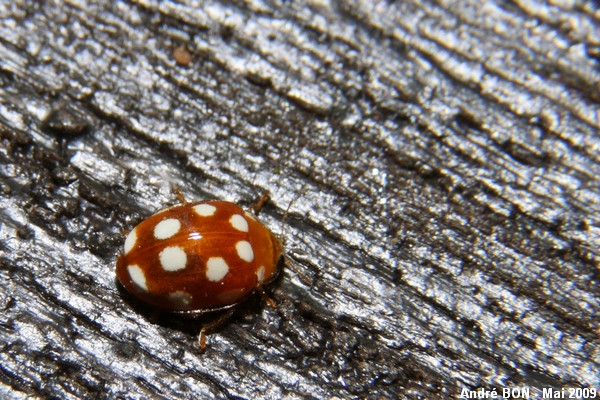



| Cream-spotted Ladybird (Calvia quattuordecimguttata (Linnaeus, 1758)) |




|
|
Scientific name: Calvia quattuordecimguttata (Linnaeus, 1758) Common name: Cream-spotted Ladybird Other names: Fourteen Spotted Lady Beetle French name: Coccinelle à quatorze points blancs Order: Coleoptera Family: Coccinellidae Wingspan : 4.5 to 6 mm. Biotope: Forests, hedgerows, parks and gardens. Geographic area: Europe, North America. Observation period : March to October. |
The Cream-spotted Ladybird has a chestnut brown to blackish ground colour. As states by its common name, it shows 7 whitish-yellow dots on each elytron. The eyes are black. The pronotum is the same colour as the elytra and shiny. There can be a small white mark on the margin on each side of the pronotum. Cream-spotted Ladybirds and their larvae feed on aphids and other small insects. They are usually high in deciduous trees and sometimes come down on Umbelliferae. It over winters as an adult. |
| [To know more about the Cream-spotted Ladybird] [Next picture] [Top] |

|
After a few medium-quality photos of the Cream-spotted Ladybird among vegetation, it had to come to the kitchen ceiling for me so that I do a little better. However, I still need to make significant progress. |
| [To know more about the Cream-spotted Ladybird] [Next picture] [Previous picture] [Top] |

|
I have had some difficulties to shoot pictures of this Cream-spotted Ladybird as it went to hide among vegetation. |
| [To know more about the Cream-spotted Ladybird] [Next picture] [Previous picture] [Top] |

|
I have found this Fourteen Spotted Lady Beetle on a leaf of the Virginia Creeper which covers one wall of my house. |
| [To know more about the Cream-spotted Ladybird] [Previous picture] [Top] |

|
The poor quality of the lenses I am using requires me to use the flash to shoot macro pictures. It is very difficult not to burn the white spots of the Ladybird. |